This book seeks to illuminate the expansive nature of legal practice in the society. It is also aimed at provoking further debate, research and publication. The author draws from her knowledge and experience as an Advocate, Accountant, Certified Secretary and Governance expert.

LEGAL PRACTICE MANAGEMENT
KSh 3,500.00
This book seeks to illuminate the expansive nature of legal practice in the society. It is also aimed at provoking further debate, research and publication. The author draws from her knowledge and experience as an Advocate, Accountant, Certified Secretary and Governance expert.
2 in stock
Related products
-
Handbook of Company Law
KSh 3,000.00This handbook covers the wider subject of business law which includes international elements of commercial law and the law of business associations. It covers a few of the topics which commonly feature in accountancy and business management courses in commercial and company law, and in curricular designed for undergraduate students of law.
-
CORPORATE SECRETARIAL PRACTICE IN KENYA
KSh 2,600.00Company and Secretarial Practice in Kenya Today is a practical guide to the core functions and responsibilities of a Company Secretary and, therefore, the secretarial function in the present day Kenya. This handbook covers company secretarial duties as laid down by statute, common law and good practice.
-
Procedure in the Law of Succession in Kenya-Mary Angawa
KSh 1,800.00One of the difficulties courts have been having in the past in dealing with the Law of Succession Act, had been with the issue of marriage. The Succession Act and the Marriage Act were to have come into operation simultaneously. This did not occur until almost 50 years later. The Marriage Act was gazetted on the 6 May 2014. Parliament amended and consolidated “the various laws relating to Marriage and Divorce and to connected purposes.”
-
A Text Book on Tax Law in Kenya
KSh 2,980.00A Text Book on Tax Law in Kenya is a treatise on Kenyan tax law. It is a reference book for the training of advocates, accountants, tax agents, consultants, business owners, public among other professionals interacting with tax matters. It is an indispensable handbook for any professional pursuing a career in tax including the decision makers, Judges, Magistrates, and Tax Tribunals. It is an extensive summary of the tax law in Kenya and the tax jurisprudence emanating from Kenyan Courts and Tax Appeal Tribunal.
-
Litigation-The Art of Strategy and Practice
KSh 2,614.00Litigation – The Art of Strategy and Practice is a practical guide for lawyers and law students, offering insights on case strategy, courtroom skills, and effective advocacy.
The book is not meant to be the final solution to all practical legal problems but rather seeks to provide a quick reference to the common topical issues the litigator faces in court.
-
Law of Succession-W.M MUSYOKA
KSh 3,900.00This text broadly and comprehensively covers the area of law of succession in Kenya. It exposes the substantive succession legal regime applying in Kenya as well as the Kenyan probate practice.
-
Principles of Constitutional Law -(Law africa)
KSh 2,700.00The main aim of this book is to provide the reader with knowledge and understanding of some of the key concepts, doctrines and principles which make up that corpus of law known as constitutional law. Another aim is to develop a sound academic basis for the study of subjects based on public law, such as political science and international relations.
-
Child Rights and the Law in East Africa
KSh 2,200.00The book seeks to streamline the rights and protection of children in the three common law East African countries through law both now and in the future. The book also serves as a resource material in the area of child rights and the law, not only in East Africa, but also across Sub-Saharan Africa. It further seeks to stimulate debate on effective domestication and implementation of international child rights standards in East Africa.



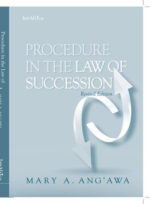
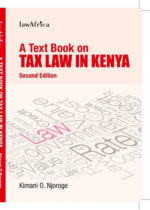
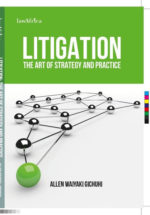
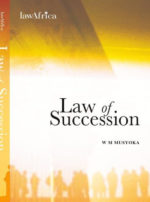

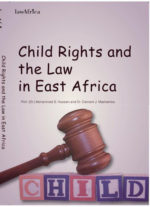
Be the first to review “LEGAL PRACTICE MANAGEMENT”